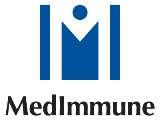Over the past few years the UK patents courts have moved closer to the approach of the European Patent Office (EPO) on inventive step. In particular, the UK courts have started to acknowledge the importance of expectation of success when dealing with obviousness. A recent decision (MedImmune Limited v Novatris Pharmaceuticals UK Limited) reinforced this shift in approach. It also showed how the court considered the effect of speculative prior art in an obviousness objection.
The Case
 MedImmune was the owner of a patent directed to the use of antibody phage displays to select antibody fragments and isolate their corresponding DNA. The judge in the England and Wales High Court (Patents Court) decided that the patent lacked inventive step. The England and Wales Court of Appeal upheld this decision.
MedImmune was the owner of a patent directed to the use of antibody phage displays to select antibody fragments and isolate their corresponding DNA. The judge in the England and Wales High Court (Patents Court) decided that the patent lacked inventive step. The England and Wales Court of Appeal upheld this decision.
Professor Smith, the leader in the field, generated the two pertinent pieces of prior art. The first was a paper published by Professor Smith and his greater history student, Steve Parmley. This document disclosed a method of using a phage display to identify peptides of interest. The authors expressed reservations over the ability of the display to be used for larger proteins.
Subsequently Professor Smith gave a presentation at a conference. During that presentation Professor Smith raised the idea that his phage display procedures might be used to screen antibody libraries. He explained that he was intending to do this, and he was very hopeful that it he could make it work.
The Judgement
The Court of Appeal followed the High Court judge's reasoning on obviousness.
Both courts agreed that the claimed invention was inventive over the earlier Smith and Parmley paper. The courts looked at the expectation of success in using the disclosed phage display to identify antibodies. The paper expressed concerns over possibly using the technology with larger proteins. Antibodies are such larger proteins. Therefore the court decided that the claimed technology was inventive over this paper, because the worker would have no reasonable expectation that the technology described in the paper could be used for antibodies.
However, both courts agreed that the claims were obvious in the light of the paper and Professor Smith's subsequent conference presentation. The courts acknowledged that Professor Smith had not carried out any of the work. However, they both decided that it was a sufficient spur that he, a leader in the field, had suggested the application of the technology to antibodies, and was positive about the eventual outcome. The courts also took into consideration that the surrounding technology had moved on between the publication of the paper and the conference giving the skilled person more confidence about using the technology as suggested by Professor Smith in his presentation.
Conclusions
The UK courts continue to adapt their approach on obviousness, to more closely follow that of the Boards of Appeal of the EPO. In particular, when they consider inventive step, the UK courts will look at the expectation of successfully moving from the prior art to the invention.
This case also shows that some prior art can be devastating, even if it is merely speculative, as long as it makes the link between the prior art and invention with enough authority.
This article was reprinted with permission from Forresters.